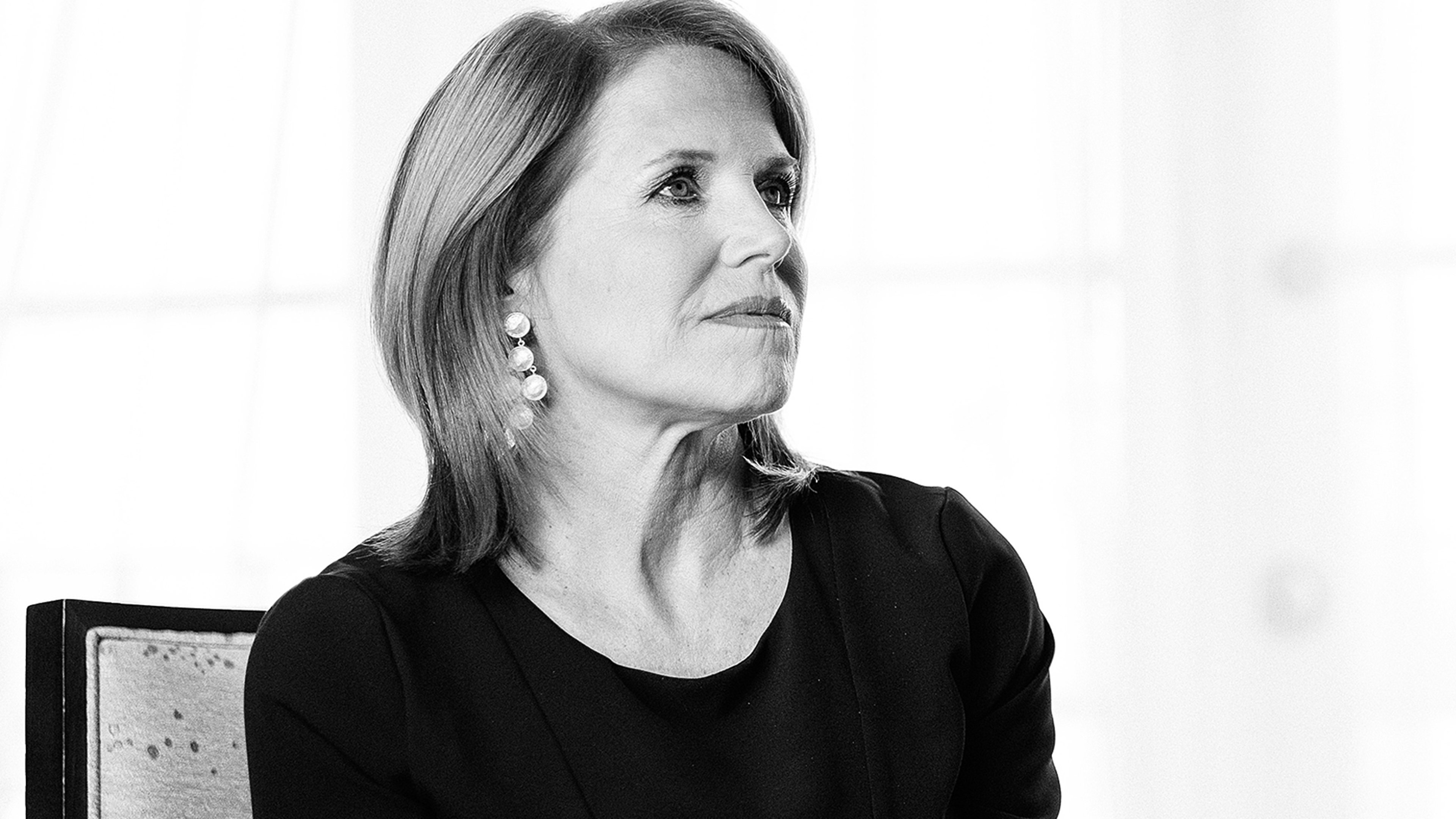“I’ve got issues,” says Katie Couric. She’s on vacation with friends in Nantucket, and has been driving around the island looking for a spot with good reception. Her cell phone’s battery has died, so she’s calling from a friend’s phone. “Like most people I know, I sometimes get panic-stricken looking for my phone—when I’m on my phone,” the anchorwoman says with a laugh. “That makes me think that I have I have a problem. I just think that like so many people, I check my phone way too frequently. I am on it way too much and I think it’s disruptive to relationships and to your mental health.”
Recently Couric sought professional help, inviting author and psychology professor Jean Twenge to her year-old podcast to talk about the impact that smartphones are having on her and all of us. Twenge, who teaches at San Diego State University, recently set the internet atwitter with an article for The Atlantic that asked, “Have smartphones destroyed a generation?” Couric was already a fan of Twenge and her book Generation Me. “I was anxious to talk to her.”
Since Couric is the boss of her podcast and one of the most respected journalists today (her resumé, remember, includes helming Today and the CBS Evening News), she can pretty much interview whomever she likes. Soon enough, Twenge was in the recording studio for an in-depth discussion about her work and what smartphones are doing to kids these days—and adults like Couric who can’t put their phones down.
Related: Katie Couric: “I’m In This Giant Petri Dish Where Anything Is Possible”
You can listen to Couric’s interview with Twenge here, and should, but the crux of their conversation was this: Smartphones are making young people more open-minded, but much more isolated than previous generations. It’s a startling conversation and Couric, who is, of course, an expert interviewer, digs deep into the topic.
That ability to spend 50 minutes thoroughly discussing the minutiae of a topic (along with cohost Brian Goldsmith) is what led Couric—a decades-long veteran of the far punchier, far more ratings-driven world of news TV and web video—into podcasting in the first place.
“I love the idea that I can do an extended conversation,” she says. “That is really hard to do! I really love the idea of really exploring a topic and not feeling like I had to rush somebody to come up with sound bites. As a result, you can have a much more thoughtful conversation, which feels more natural and sort of meanders, in the best possible sense of the word.”
After years of high-profile gigs, the podcast, simply titled Katie Couric, is now her most reliable regular outlet for that kind of long-form thoughtfulness—the sort of thing that seems to be going extinct across the web. That shift helps explain why she stepped down as Yahoo’s global news anchor in July, amid an exodus of talent just weeks after Verizon acquired the company, and despite the fact that she was reportedly offered something in the low seven figures to extend her contract through the end of the year. Couric may continue to work with Oath (that’s Yahoo’s new name) on a project basis, but is now looking forward to bigger, longer-form material, including working on a docuseries for National Geographic about major social issues.
While Couric could theoretically have her choice of outlet, podcasting appealed to her because she loves conversation and the way audiences respond to them. “[It] is an extremely intimate experience between whoever’s doing the podcast and the listener,” says Couric. “It feels very one-on-one.” The audience seems to love it, too. “For whatever reason, the podcast audience is just very loyal, very engaged,” says Couric. “That’s a very gratifying thing for me.”
Still, Couric emphasizes, concerns about the overuse of smartphones shouldn’t stop you from listening to her podcast on your phone. “There’s obviously credible uses,” she says, listing off all the important information she has googled in the last few hours (bumblebees, the right to assemble). “I look up things all the time and I think that’s really useful. At the same time, I think the constant distraction of a phone can really keep you from appreciating your surroundings.”
“I worry about the ramifications of that for empathy and you know our interpersonal relationships,” she adds. That’s why when her daughters come home for the Labor Day weekend, Couric has a little surprise for them. “I just got a little tin container that says, ‘cell phones’ on it,” says Couric. “I think I’m really going to try to do a digital detox with them at least for part of the time.”
That’s not where Couric’s plan to end her smartphone addiction ends, either. “I try to intentionally leave my phone at home if I’m going out on a walk with my husband or if we’re going someplace so I’m not tempted to go on it. Because, as you know you know, it fires off dopamine in your brain—the pleasure center of your brain—like a lot of other addictive substances. So, I try to resist the temptation by making sure there’s nothing there to tempt me.”
“I sound,” she says with a laugh, “like I’m in an iPhones anonymous group.”
You can listen to Katie Couric here.
Recognize your brand’s excellence by applying to this year’s Brands That Matter Awards before the early-rate deadline, May 3.
